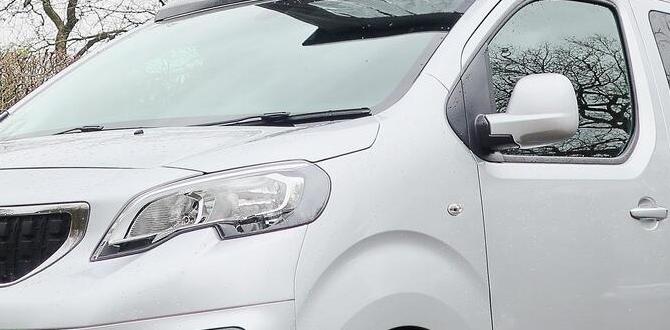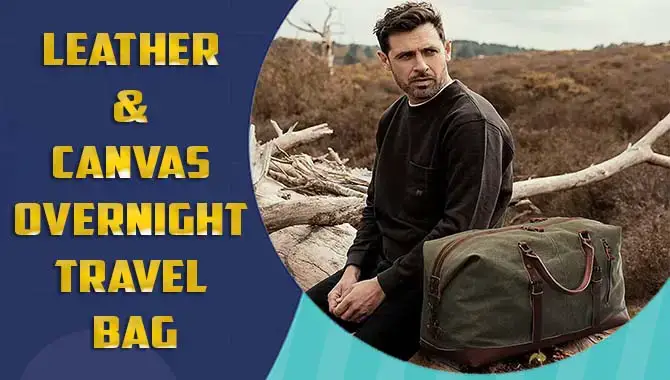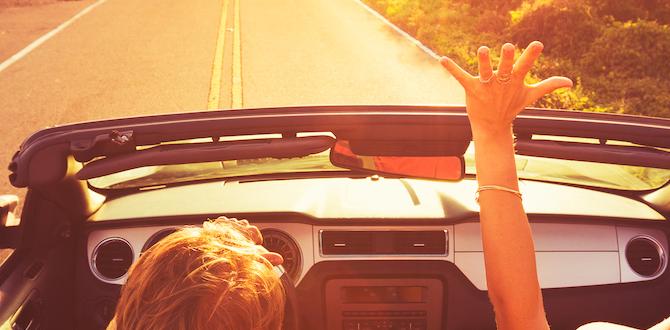Abu Dhabi local etiquette and tipping are straightforward when you understand a few key principles. Respect local customs regarding dress and public displays of affection. Tipping is appreciated but not mandatory, typically ranging from 5-15% for good service. Understanding these basics ensures a comfortable and respectful visit.
Planning a trip to Abu Dhabi is exciting! You’re likely dreaming of majestic mosques, stunning deserts, and vibrant city life. But with new cultures often come new social norms, and knowing them can make all the difference between a smooth journey and feeling a bit unsure.
Understanding local etiquette and tipping practices might seem small, but it’s a huge part of showing respect and ensuring you have a wonderful, stress-free experience. Don’t worry, it’s simpler than you think! We’re here to break down everything you need to know, step-by-step, so you can feel confident and prepared.
Understanding Abu Dhabi’s Cultural Nuances: A Beginner’s Guide
Abu Dhabi, the capital of the United Arab Emirates, is a fascinating blend of ancient traditions and modern ambition. As a visitor, showing an understanding and respect for local customs will greatly enhance your interactions and overall experience. This isn’t about memorizing complex rules, but rather embracing a mindset of consideration for the people and culture around you. Journey Essentials is all about making travel comfortable and stress-free, and that includes navigating social situations with ease.
Dress Code: Modesty is Key
When it comes to clothing in Abu Dhabi, particularly in public spaces, modesty is highly valued. This applies to both men and women. While Abu Dhabi is more liberal than some other parts of the region, respecting local dress codes shows cultural sensitivity.
What to Wear for Women:
- Shoulders and Knees Covered: Aim to wear outfits that cover your shoulders and come down to at least your knees. This includes tops with sleeves and skirts or trousers that aren’t too short.
- Avoid Tight or Revealing Clothing: Super tight, sheer, or low-cut clothing is best avoided in public areas.
- Abayas: While not mandatory for tourists, many local women wear an abaya (a long, loose black robe) over their clothing. You can purchase beautiful ones if you wish.
- For Mosques: When visiting mosques, such as the magnificent Sheikh Zayed Grand Mosque, women will be required to cover their heads with a scarf and wear an abaya. These are often available for rent or loan at the mosque entrance if you don’t have your own.
What to Wear for Men:
- Trousers or Long Shorts: Men should wear trousers or longer shorts that reach at least to their knees.
- Avoid Sleeveless Tops: It’s advisable to wear tops with sleeves.
- General Comfort: Lightweight, breathable fabrics are ideal for Abu Dhabi’s climate.
Important Note for Hotel Pools and Beaches: While the dress code is more relaxed at private hotel pools and beaches, it’s still respectful to avoid overly revealing swimwear when walking to and from these areas.
Greetings and Social Interactions
Greetings are an important part of showing respect. While a general friendly demeanor is usually sufficient, understanding a few nuances can go a long way.
- Hand Gestures: The traditional greeting is the right hand. A handshake is common between men. Men and women may not shake hands unless the woman offers her hand first. It’s perfectly acceptable to simply nod and smile if you’re unsure.
- Public Displays of Affection: Public displays of affection, even between married couples, should be kept to a minimum. A quick kiss or hug in public is generally frowned upon. Holding hands is usually acceptable.
- Respect for Elders: As in many cultures, showing respect for elders is highly valued.
- Photography: Always ask for permission before taking photos of people, especially women. It’s also wise to avoid photographing government buildings and military sites.
Alcohol Consumption
Alcohol is available in Abu Dhabi, primarily in licensed hotels, clubs, and restaurants. It is illegal to consume alcohol in public or to be intoxicated in public. You must be at least 21 years old to purchase or consume alcohol. Tourists can purchase alcohol from licensed venues, and residents holding a valid liquor license can buy from designated shops for consumption at home.
Ramadan and Local Observances
If you are visiting during the holy month of Ramadan, it’s crucial to be aware of specific rules and customs. During fasting hours (dawn to sunset), Muslims abstain from food, drink, and smoking. As a visitor, you are expected to refrain from eating, drinking, and smoking in public places during these fasting hours.
This shows respect for those who are fasting. Many restaurants may be closed during the day or operate with limited service. After sunset, the breaking of the fast (Iftar) is a communal and joyous occasion. You can learn more about Ramadan and its significance from official UAE government resources, such as through the UAE Government portal.
Dining Etiquette
Mealtimes are often social occasions, and following a few simple rules will ensure a pleasant dining experience.
- Right Hand Usage: As is common across much of the Middle East, the right hand is traditionally used for eating. If eating with your hands, use only your right hand.
- Accepting Food/Drink: When offered food or drink, it’s polite to accept with your right hand. If you decline, do so politely.
- Finishing Your Plate: It’s not necessarily a sign of politeness to leave food on your plate; finishing it shows appreciation for the host’s generosity. However, if you are full, it’s also acceptable to leave a little.
- Paying the Bill: In most restaurants, the bill will be brought to your table. Tipping is a separate consideration, which we’ll discuss next.
Tipping in Abu Dhabi: A Practical Guide
Tipping is a way to show appreciation for good service, and while not always mandatory, it is generally welcomed in Abu Dhabi. Understanding when and how much to tip can help you feel more confident when dining out or using services.
When Should You Tip?
Tipping is common in the following situations:
- Restaurants and Cafes: For sit-down meals, especially at mid-range to high-end establishments.
- Taxis: Rounding up the fare or tipping a small amount is customary.
- Hotel Staff: For services like room service, housekeeping, and bellhops.
- Tour Guides and Drivers: For excellent service.
- Salons and Spas: For beauty treatments and massages.
How Much Should You Tip?
Here’s a breakdown of common tipping practices:
Restaurants and Cafes
A service charge (usually around 10-15%) is often included in the bill at most restaurants and cafes. Check your bill carefully. If a service charge is already added, an additional tip is not strictly necessary but is always appreciated for exceptional service. If no service charge is included, a tip of 10-15% for good service is appropriate.
Taxis
Tipping taxi drivers is not mandatory, but it’s a good practice to round up the fare to the nearest dirham or two, or leave a tip of around 5-10% if the driver provided exceptional service (e.g., helped with luggage, was very punctual).
Hotels
- Bellboys: A tip of AED 5-10 per bag is standard for assisting with luggage.
- Housekeeping: Leave AED 5-15 per day for the housekeeping staff. It’s best to leave this in an envelope marked “for housekeeping” on your final day or daily.
- Room Service: A service charge is often included, but an additional 5-10% on top of the bill is a nice gesture for good service.
- Concierge: If a concierge goes above and beyond to help you book tickets or make arrangements, a tip of AED 20-50 is appropriate.
Tour Guides and Drivers
If you have hired a private guide or driver for a full day or for an extended tour, a tip of AED 20-50 per person per day is a common gesture for good service. For excellent service, you might consider a bit more.
Salons and Spas
A tip of 10-15% is customary for excellent service at salons and spas.
Table: Tipping Guidelines in Abu Dhabi
This table provides a quick overview of tipping recommendations:
| Service Type | Recommended Tip Percentage/Amount | Notes |
|---|---|---|
| Restaurants (Mid-range to High-end) | 10-15% (if service charge not included) or round up | Check if 10-15% service charge is already included. Additional tip for exceptional service. |
| Taxis | Round up fare or 5-10% | Not mandatory, but appreciated for good service. |
| Hotel Bellboys | AED 5-10 per bag | For handling luggage. |
| Hotel Housekeeping | AED 5-15 per day | Can be left in an envelope. |
| Room Service | 5-10% (if service charge not included) | Tip on top of bill for good service. |
| Tour Guides/Drivers | AED 20-50 per person per day | For full-day or extended tours with good service. |
| Salons/Spas | 10-15% | Customary for good service. |
Is Service Charge Included?
As mentioned, many establishments, particularly restaurants and hotels, will include a service charge (often 10-15%) on your bill. Always review your bill before paying to see if this charge is already present. If it is, an additional tip is discretionary and reserved for truly outstanding service.
Tipping in Budget Establishments
In very casual eateries or smaller cafes where service is minimal, tipping is less expected. However, if the service was exceptionally friendly or helpful, a small tip is still a kind gesture.
The Currency: Dirhams (AED)
The local currency in Abu Dhabi is the United Arab Emirates Dirham (AED). While a 5% VAT (Value Added Tax) is applicable on most goods and services, it is usually included in the advertised price. Tipping amounts should be in AED.
Navigating Abu Dhabi with Confidence: Extra Tips for Travelers
Beyond etiquette and tipping, a few other practical tips can make your Abu Dhabi adventure even smoother, especially if you’re traveling with family or require specific personal care items.
Family Travel and Personal Care Needs
Traveling with children, or needing personal care items like adult or child diapers, requires planning. Abu Dhabi is well-equipped to handle diverse needs, but a little preparation can save stress.
- Diaper Availability: Reputable brands of adult diapers and child diapers are readily available in major supermarkets and pharmacies across Abu Dhabi. Brands like Huggies, Pampers (for children) and Depend, Tena (for adults) are commonly found.
- Packing Essentials: For immediate needs upon arrival or during travel, packing a small supply of diapers (both adult and child, if applicable) in your carry-on luggage is a good idea. This ensures comfort and hygiene during flights or road trips, avoiding the stress of searching for them immediately.
- Comfort During Travel: Ensure you have comfortable travel wear. Lightweight, breathable clothing is essential in Abu Dhabi’s climate. For long journeys, consider comfort items like travel pillows, and for peace of mind regarding personal care, travel-sized packs of wipes or extra changes can be very useful.
Communication and Language
Arabic is the official language, but English is widely spoken and understood, especially in tourist areas, hotels, and businesses. Learning a few basic Arabic phrases like “Shukran” (Thank you) and “Assalamu alaikum” (Peace be upon you) is always appreciated.
Transportation
Abu Dhabi has an excellent public transportation system, including modern buses. Taxis are readily available and affordable. Ride-sharing apps like Uber and Careem are also popular and reliable options. When using taxis, ensure the meter is used.
Respecting Local Laws
While Abu Dhabi is a modern city, it’s important to be aware of and respect local laws. This includes laws related to public behavior, photography, and of course, the consumption of alcohol. The UAE has strict laws regarding drug possession and use, so ensure you are aware of and comply with these regulations.
For detailed information on UAE laws and regulations relevant to tourists, you can refer to advisories from your home country’s foreign affairs department or official UAE government websites.
Conclusion
Abu Dhabi is a city that greets visitors with open arms, offering incredible experiences from awe-inspiring architecture to desert adventures. By familiarizing yourself with local etiquette and tipping customs, you’re setting yourself up for a journey filled with positive interactions and a deeper appreciation for the UAE’s rich culture. Remember, the key isn’t perfection, but rather a genuine effort to be respectful and considerate. Whether you’re navigating dining experiences, choosing your attire, or simply greeting someone, these practices will enhance your trip.
At Journey Essentials, we believe that preparedness is the foundation of stress-free travel. Knowing these cultural nuances, much like packing the right accessories or ensuring you have necessary personal care items like comfortable adult or child diapers for longer journeys, allows you to relax and fully immerse yourself in the magic of Abu Dhabi. So go forth, explore, and enjoy every moment of your adventure with confidence and peace of mind!
Frequently Asked Questions
Q1: Do I really need to cover up in Abu Dhabi?
A1: Yes, dressing modestly is highly recommended in public places to show respect for local culture and Islamic traditions. This means covering your shoulders and knees. While beach resorts are more relaxed, being mindful of your dress is always a good practice.
Q2: Is tipping expected everywhere?
A2: Tipping is not mandatory everywhere, but it is appreciated for good service in restaurants, hotels, taxis, and for tour guides. Always check if a service charge is already included in your bill.
Q3: Can I drink alcohol in Abu Dhabi?
A3: Yes, you can drink alcohol in licensed hotels, clubs, and restaurants. However, public intoxication and drinking alcohol outside of these licensed venues are strictly prohibited.
Q4: What is a polite way to decline an offer?
A4: A polite smile and a gentle verbal decline, often accompanied by a gesture of the hand, is usually sufficient. For food or drink, you can say “La, shukran” (No, thank you).
Q5: How much do I tip for a taxi ride?
A5: Tipping taxi drivers is not essential. You can round up the fare to the nearest dirham or two, or offer a small tip of about 5-10% for exceptional service.
Q6: What if I’m visiting during Ramadan? What should I do?
A6: During Ramadan, refrain from eating, drinking, and smoking in public during fasting hours (dawn to sunset). This is a sign of respect. Be patient as services might be limited during the day.
Q7: Is it okay to take photos of people in Abu Dhabi?
A7: It’s always best to ask for permission before taking photos of individuals, especially women and families. Avoid photographing government buildings or military sites.







